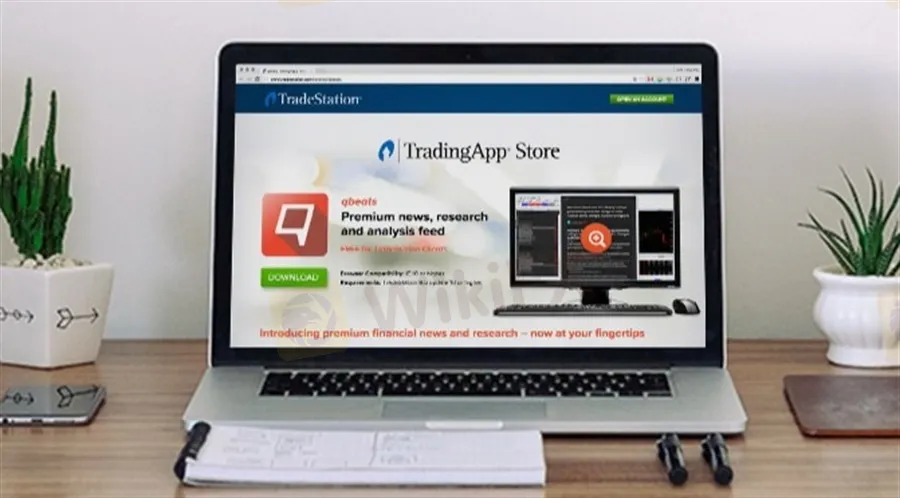简体中文
繁體中文
English
Pусский
日本語
ภาษาไทย
Tiếng Việt
Bahasa Indonesia
Español
हिन्दी
Filippiiniläinen
Français
Deutsch
Português
Türkçe
한국어
العربية
TradeStation Continues to See Client Surge, Aprils DARTs Jumped 4%
Abstract:American brokerage platform, TradeStation, which is owned by the Monex Group, published the brokerage metrics for April 2022, reporting an almost 6.1 percent monthly rise in the total number of customers. It ended the month with 240,417 customer accounts.

The trading platform added 19,805 new accounts last month.
Total client assets held in the platform dipped.
The latest jump in the number of customers was a staggering 60 percent when compared with the same month of the previous year. The trading platform added 19,805 new accounts in April 2022.
Despite the increasing client numbers, the customer assets held by the platform are plummetting. It ended April holding $10.76 billion in total customer assets, which is down from the previous month‘s $12.3 billion and the previous year’s $10.84 billion. The customer cash on the platform also dropped to $2.8 billion.
The daily average revenue trades (DARTs) on the platform for the month came in at 226,760. This figure was 4.1 percent higher than the prior year but slipped from Marchs 232,104.
Though the new client onboarding remained strong for a while, the broker has been witnessing a decline in trading activities. It cited a decrease in trading activities to justify a 19 percent decline in its revenue between January and March, Finance Magnates reported earlier. It also reported a slump in net interest income, subscription, and other revenue streams.
Upcoming Public Listing
Meanwhile, the trading platform is on the path to listing its stocks on a public exchange in the United States. It has chosen the path of a reverse merger and has already inked a deal with a blank check company. TradeStations current owner, Monex Group will continue to hold around 80 percent ownership of the merged entity.
The platform, which primarily offers self-clearing equities, options, futures and futures options brokerage services, is also enhancing its cryptocurrency services. Earlier this year, the platform extended its crypto offerings to Puerto Rico.

Disclaimer:
The views in this article only represent the author's personal views, and do not constitute investment advice on this platform. This platform does not guarantee the accuracy, completeness and timeliness of the information in the article, and will not be liable for any loss caused by the use of or reliance on the information in the article.
Read more

UK Hits HSBC, 3 Banks with £104.4M Fine for Bond Misconduct
HSBC, Citi, RBC, and Morgan Stanley fined £104.4M by CMA for sharing sensitive bond market info, distorting UK gilts competition from 2009-2013.

WikiFX Elites Club —— Fun Spring Camping in Malaysia Successfully Concluded!
From February 20 to 21, WikiFX Elites Club hosted an exclusive “Spring Camping” event in the stunning Cameron Highlands, blending forex trading excitement with the serenity of nature. Members engaged in simulated trading competitions, social networking, and outdoor adventures, fostering deep connections and valuable industry insights.

IG 2025 Most Comprehensive Review
This article evaluates the broker from multiple dimensions, including a basic introduction, fees, safety, account opening, and trading platforms.

EXNESS 2025 Most Comprehensive Review
This article evaluates the broker from multiple dimensions, including a basic introduction, fees, safety, account opening, and trading platforms.
WikiFX Broker
Latest News
Germany's Election: Immigration, Economy & Political Tensions Take Centre Stage
WikiFX Review: Is IVY Markets Reliable?
IG 2025 Most Comprehensive Review
Construction Datuk Director Loses RM26.6 Mil to UVKXE Crypto Scam
SEC Drops Coinbase Lawsuit, Signals Crypto Policy Shift
Top Profitable Forex Trading Strategies for New Traders
EXNESS 2025 Most Comprehensive Review
ED Exposed US Warned Crypto Scam ”Bit Connect”
New SEC Chair Paul Atkins Targets Crypto Regulation Reform
WikiFX Elites Club —— Fun Spring Camping in Malaysia Successfully Concluded!
Currency Calculator







